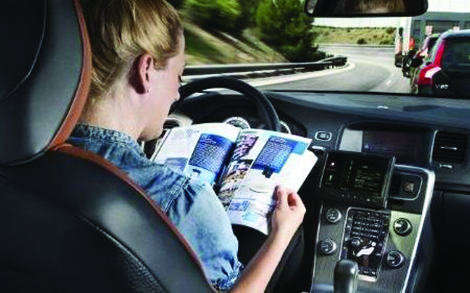A large majority of older adults reportedly like the idea of self-driving vehicles as a way to get around and make the most of life.
The National Council on Aging (NCOA) and Volkswagen Group of America conducted an online survey of older adults on their attitudes and perceptions about self-driving and ride hailing services, and also their thoughts about alternative transportation. Among the results: Approximately 70 percent of survey participants said they trust the services could enhance their safety, help them achieve tasks outside the home, and do the things they want to do.
About three-quarters of the surveyed seniors said they expect to use self-driving or ride-hailing technologies in the future and agreed it would help them maintain their independence.
“Technology will play a key role in addressing challenges faced by older adults who are no longer able to drive,” said Kathleen Cameron, NCOA’s senior director. “The five most important aspects for them are safety, quality of service, convenience, traffic, and overall comfort of riding in the vehicle.”
Almost 2,500 people over the age of 55, mostly from metropolitan areas, responded to the survey. Sixty-four percent were men.
According to NCOA, older adults often outlive their decision to stop driving by about 10 years for women and seven years for men. They give up their car keys usually due to declining vision, physical, and cognitive abilities, or the use of medications that impair driving. Non-driving older adults need alternative transportation to go to doctor’s appointments, shop, and engage in activities that keep them socially connected, such as attending religious services, visiting friends and family, and entertainment.
Caregivers most often provide transportation for older adults. In some parts of the country, public transportation, taxis, and ride-hailing services like Uber or Lyft may be options. But in many rural areas, those alternatives aren’t available.
In-car technology can play an important role by performing parts of the driving task, and soon, cars will become so advanced they will do the driving entirely from start to end. Self-driving taxis, Uber or Lyft, or public transit shuttles also could be a solution for older adults, say officials of NCOA, an advocacy organization for older adults.
Volkswagen, which joined NCOA in the survey, is among developers of self-driving technology.
